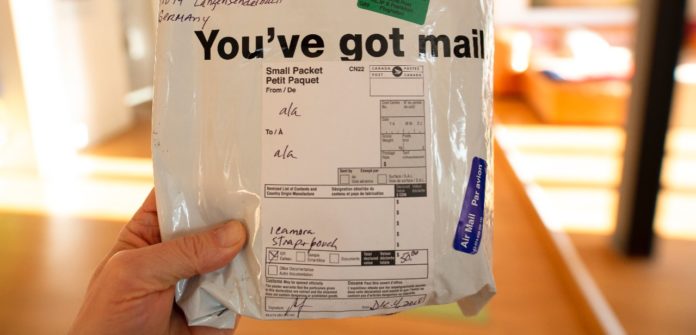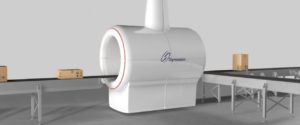
The sale of illegal drugs is big business. So far, this year, people across the world have spent more than $200 billion (€177 billion+) on this.
One avenue of sales has been steadily increasing – sending hard drugs using the postal service. The Netherlands is gaining an increasingly bad reputation internationally because of this. That’s according to Brainport Eindhoven.
“Every month, Dutch dealers send an estimated 9,000 parcels containing various kinds of hard drugs to foreign countries,” reads an article on their website. Now, a local start-up could provide a solution to this global issue. The Eindhoven start-up, Dynaxion Security, is developing a system that can accurately identify drugs in parcels, mail, and suitcases.
Highly accurate
Dynaxion uses an innovative combination of technologies. This allows the exact contents to be determined with a very high degree of accuracy. That offers significant advantages compared to current methods.
X-ray machines, CT scans, and detection dogs are currently doing this work. Dynaxion co-founder, Joost van de Griendt, adds, “In addition to the accuracy, the possibilities for upscaling are also interesting for the relevant sectors.” There is, after all, a team involved in the scanning process, he says in the article.
Dynaxion is, however, continually facing the problem that many investors are afraid of the potentially long payback period. “Even the obvious parties such as Schiphol Airport, Customs, or the Ministry of Justice and Security don’t yet see this technology’s potential,” reads the report.
Some financing secured
But, Dynaxion has secured €350.000 in new operating capital. That’s through the Early Stage Financing Scheme from the Dutch Ministry of Economic Affairs and Climate Policy (VFF). This money will be used for proof of concept.
-

What the Dynaxion scanner could look like. Photo credit: Dynaxion. - With this, “Dynaxion will demonstrate our unique combination of technologies. These can automatically and accurately identify dangerous and illicit goods in suitcases and parcels,” reads an article on the company website. The company was also granted a €230.000 loan in December 2019. That was from Braventure via the Brabant Startup Fund.
Van de Griendt draws some hope from the support that SMART Photonics received from State Secretary, Mona Keijzer. “The loan of €20 million shows … that there may be a role and an opportunity for the government here as well. Together, we can … improve our reputation.”
The American government’s method of trying to tackle this problem also shows that this technology could be a good export product. “It’s not for nothing that the White House selected Dynaxion as (an)… organisation that can contribute to the detection of opioids in international mail. This could save many lives,” Van de Griendt says.
Last year, the US government and other agencies announced finalists, of which Dynaxion is one, in the Opioid Detection Challenge. This global competition has a $1,55 million (about €137 million) prize. It aims to get companies to create ‘rapid, nonintrusive detection tools that will help find illicit opioids in international mail’.
Dynaxion’s currently still doing computer simulations and subsystem testing. “By the end of this year, we plan to demonstrate our proof of concept to relevant stakeholders, potential customers, and potential investors,” says the company on its website. Next year, they’ll build a prototype system.
Two pilot systems will follow in 2022. These will be tested and certified in real-life environments. “For this phase, we’ll need a substantial investment. So, we’ll continue our talks with potential investors on the way to securing this next round of funding,” the company’s website reads.
Source: Brainport Eindhoven
For Eindhoven News: Melinda Walraven















